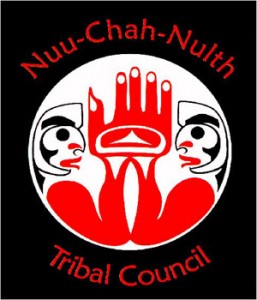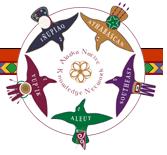Video-conferencing for indigenous schools
One more example of technology helping students learn exists in New Zealand. Children can now choose whether to go to an English speaking school or an indigenous language school. For those indigenous schools where they do not have, say, a science teacher, they will use video-conferencing to connect to another school who does. That way, they can hear the lessons in their own language. I do wonder how reliable the video-conferencing is, and how engaged the students are at the other end of the camera. But, it is an interesting way to preserve/rejuvenate a language and also connect with other communities where it would have been impossible to do so otherwise.
http://ictupdate.cta.int/en/Regulars/Perspectives/Connecting-communities
December 1, 2010 No Comments
Living Cultural Storybases
I found this site to share an interesting use of technology. This organization tries to ‘enable’ indigenous communities to share their stories, traditions, songs and poems with community members who are geographically dispersed. Community members are taught how to use digital recording devices and then they record their stories to share. It’s not very high tech, but that might bring part of its success. Projects include communities in Canada, Timbuktu, Peru and Ethiopia. I am interested in hearing some of the stories, once they are posted.
December 1, 2010 No Comments
Learn Cherokee on an iPod, and other language sites
I think it is incredibly forward thinking to create an app to learn Cherokee, available in the Apple store for only $9.99. Kids (and adults) are connected to their cell phones, so why not give them an app that allows them to learn on the go. Soon to be available for the Nintendo DSi. I would love to know how many people have purchased it to date. It is rated 4+ on iTunes.
http://www.ndnlanguage.com/Cherokee_products.html
On the technology and language thread, Language Geek is in business to promote tools for the promotion of indigenous languages. They have over 170 keyboards for Mac and Windows that cover many language families. An interesting note is that a large barrier to writing authentic works in Native languages is the lack of an easy way to type it. Language Geek has solved this issue with their custom products.
Tech Soup is another site that I had not heard of until I started research on my paper. This organization connects non-profits, charities and libraries with hardware and software donations, subject to an admin fee. Microsoft, Cisco, Intuit, Flickr and others are offering their products for next to nothing.
November 29, 2010 No Comments
UNESCO Atlas of the World’s Languages in Danger
As mentioned in the learning café, the UNESCO Atlas of the World’s Languages in Danger contains a comprehensive guide to the thousands of endangered languages around the world, including those in Canada and British Columbia.
The Atlas is described on the UNESCO site as:
“……presented on the eve of International Mother Language Day (21 February), enables searches according to several criteria, and ranks the 2,500 endangered languages that are listed according to five different levels of vitality: unsafe, definitely endangered, severely endangered, critically endangered and extinct.”
The interactive map and statistics page are easy to navigate. Most of the available information appears to rely on census data, which is in some cases dated and comes with the usual set of limitations related to census taking. However, being able to compare data on issues facing indigenous languages around the world is quite useful when discussing languages issues related to Canadian First Nations.
And who knew there was actually an International Mother Languages Day?!?!
November 25, 2010 No Comments
Native American Radio
http://www.knba.org/

Koahnic Broadcast Corporation (KBC) operates out of Alaska and is a First Nations radio network. The programming, which is sometimes shared with NPR is centred on Indigenous news and issues. Live streaming is available. The website and the programming seem to be only in English. However, there is a word of the day section on the site that highlights a word from one of the Indigenous languages spoken by the listening audience.
I listened to the stream of a program called Native American Calling for a while and the interview was very interesting. The subject of the interview was an Alaskan musician who was asked the story of how he chose his profession. The answer was told in the form of a beautiful story about a relative who was the last fluent speaker of his language in the family. This struck a chord with me after doing research for my analytical paper. Callers also brought up the issue of language revitalization. There is a real urgency voiced about saving languages. . . even if it is being stated in English.
The news section comes mostly from wire sources. The first story about Indigenous people was not until the middle of the page. http://www.publicbroadcasting.net/kbc/news.newsmain
I also learned that it’s warmer in Anchorage than it is in Lethbridge.
November 19, 2010 No Comments
Nuu-chah-nulth Language Audio “Phrase Book”
Although the execution is not completely perfect, this premise is very strong http://www.nuuchahnulth.org/language/language.html. The basic idea is to offer both a written and audio dictionary (more like a phrase book) related to the language. I have heard that this effort was driven almost entirely by the Nuu-Chah-Nulth themselves. I will be carefully watching to see if there are further updates or releases and likely following up to find out more about this project. It may be of particular use to those folks in the class working on language preservation projects. And incidentally, the band’s newspaper, the Ha-Shilth-Sa, is a great little piece of community journalism at work. You can check that out here: http://www.nuuchahnulth.org/tribal-council/hashilth.html
October 14, 2010 No Comments
Aboriginal Contexts and Worldviews
Alternative Dispute Resolution (ADR) in Aboriginal Contexts: A Critical Review
Prepared by Wenona Victor (Sto:lo Nation) for Canadian Human Rights Commission, April 2007 (41 pages).
http://www.chrc-ccdp.ca/pdf/adrred_en.pdf
I came across this document when one of our discussion threads led to sharing meanings of “Indian Time.” The title also caught my attention as I had recently read this statement in John Ralston Saul’s book A Fair Country (2008): “our courts are far ahead of our political scientists, politicians and philosophers…[they] have now understood the First Nations’ assumptions at the time of the treaties” (p. 64).
In discussing alternative dispute resolution (ADR), Wenona Victor draws on current studies and reflections about Aboriginal contexts related to the role of power, language, women’s voices, culture and land; and the contrast of worldviews including concepts of individuality, unity of life, time, societal organization, leadership, reciprocity. “By posing both theoretical and practical questions, the text is a means by which colonial assumptions maybe be deconstructed. This analysis is helpful in shedding light on several colonial assumptions that often feed, and in many instances impede, the proper resolution of disputes between two often diametrically opposed worldviews” (p. 7).
This document informed me on other matters in addition to “relationship building in ‘Indian’ time” (p. 29). For example, my thinking was challenged in the section about the “elicitive” approach to mediation (i.e. an approach requiring the mediator to take the lead from the parties involved and recognize the process as both a functional and political one) and the Western cultural presuppositions involved in the belief that “the best mediator will be an outsider, impartial and unbiased” (p. 30). As an example that “claiming Western norms and values as universal undermines” a process like mediation, the author writes, “oral tradition within Indigenous communities…often dictates who can and cannot speak on a subject. Those who are considered impartial and neutral are also disconnected and lack personal involvement; they are therefore not authorized to speak” p. 32).
October 13, 2010 No Comments
Alaska Native Knowledge Network


This site states its purpose as “resources for compiling and exchanging information related to Alaska native knowledge systems and ways of knowing.” There are lot of resources concerning curriculum, information on cultural research systems, and cultural maps.
October 11, 2010 No Comments
4 Directions Teachings
This site is by Canadian Heritage. Its objective is “a visually stunning audio narrated resource for learning about  Indigenous knowledge and philosophy five diverse First Nations in Canada”.
Indigenous knowledge and philosophy five diverse First Nations in Canada”.
October 11, 2010 No Comments
New South Wales Aboriginal Ed
Here’s a site from the New South Wales Government in Australia. It is dedicated to Aboriginal Education. It provides examples of context-based teaching and learning projects to be used. It is obvious that the values of the Aboriginal people are considered. They address Aboriginal art and languages, and contextualize math, science, and literature for the students.
October 11, 2010 No Comments


